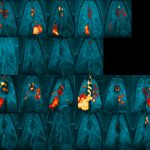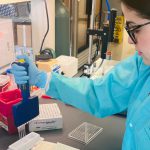Dr. Charles Rinaldo recently received the news that a major study he directs to confidentially collect information on men living with HIV will be renewed into 2026 at nearly $4 million per year. The funding from the National Institutes of Health (NIH) ensures that the Pitt Men’s Study will survive into its fourth decade.
But today, on HIV Long-Term Survivors Day, Rinaldo calls the remarkable milestone “bittersweet.”
 “I’d like to be put out of business,” said Rinaldo, professor and chair of the University of Pittsburgh Graduate School of Public Health’s Department of Infectious Diseases and Microbiology. “If HIV were cured and we had a vaccine to prevent it, it’d be like polio – nearly everyone would stop studying it and redirect their research toward other public health challenges. After four decades of research, we still can’t do that for HIV.”
“I’d like to be put out of business,” said Rinaldo, professor and chair of the University of Pittsburgh Graduate School of Public Health’s Department of Infectious Diseases and Microbiology. “If HIV were cured and we had a vaccine to prevent it, it’d be like polio – nearly everyone would stop studying it and redirect their research toward other public health challenges. After four decades of research, we still can’t do that for HIV.”
HIV Long-Term Survivors Day recognizes the more than 1 million people in the U.S. living with HIV.
The Pitt Men’s Study, part of the national Multicenter AIDS Cohort Study (MACS), was funded in 1983 and enrolled its first participant in 1984. It has since enrolled 1,713 participants, 827 of whom are currently active in the study.
Rinaldo ticks off the ways that the HIV/AIDS epidemic has changed since the early 1980s: An antibody test now quickly determines who is positive; neurological symptoms were recognized; medications were developed to delay the onset of AIDS and refined to become the antiretroviral therapy (ART) of today; pre-exposure prophylaxis was introduced as a medication that can help prevent people from contracting HIV, and HIV has transitioned from an acute, deadly illness to a chronic condition.
As such, MACS and the Pitt Men’s Study have also transformed. Research now focuses on understanding and reducing the impact of chronic health conditions that affect people with HIV, such as cardiovascular and lung diseases, anemias and other blood-related disorders, sleep disorders and certain cancers. The idea of a cure has also evolved into a “functional cure” where the virus is kept in check at undetectable levels without the need for daily medications.
“We’ve made long-term survivorship commonplace for people with HIV,” Rinaldo said. “Now let’s try to make their lives longer and healthier and give their bodies the ability to manage the virus without the use of medications.”
In its latest round of funding, the NIH is combining the MACS sites with the Women’s Interagency HIV Study (WIHS) to create the MACS/WIHS Combined Cohort Study, the nation’s largest ongoing study of HIV survivors. The newly consolidated study will include existing participants and recruit new participants who were underrepresented in previous studies, including a special focus on African American and Hispanic populations and residents of southern states. The study aims to identify biomarkers for chronic disorders in people living with HIV.
“We can’t thank our study participants enough. It’s just incredible that they’ve devoted their lives to visiting our clinic multiple times a year, giving blood and answering all our questions,” Rinaldo said. “The Pitt Men’s Study and MACS wouldn’t have survived this long without all of these men who died of AIDS and other causes and the HIV survivors who keep coming back.”








